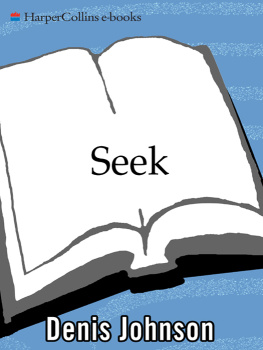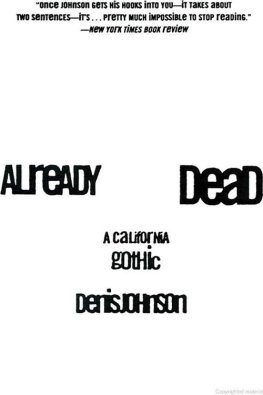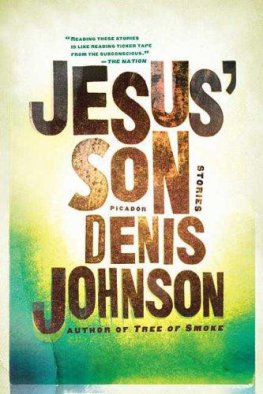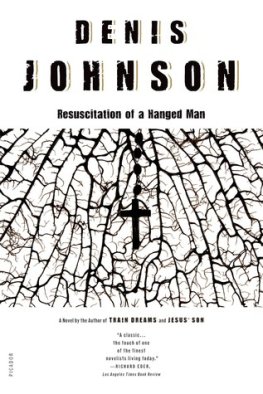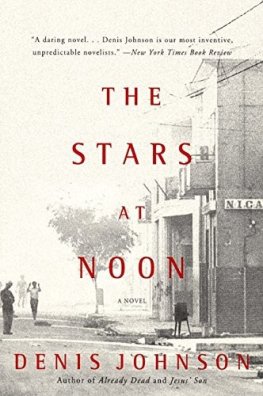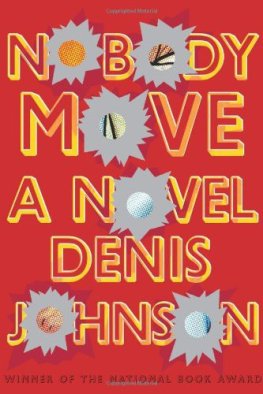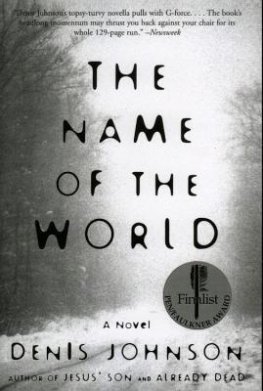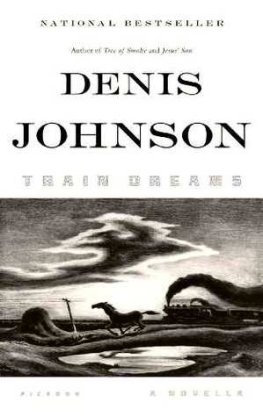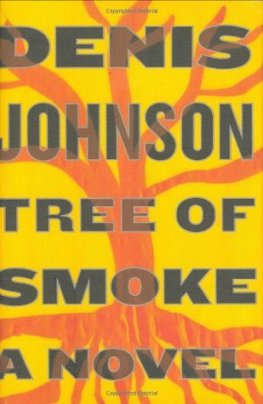While editing these pieces, its been brought home to me how enormously indebted I am to Will Blythe, begetter and editor of several of them; and to my wife, Cindy Lee Johnson.
This volume I dedicate, with thanks, to Cindy and Will.
I ts late September and the Liberian civil war has been stalled, at its very climax, for nearly three weeks. The various factions simmer under heavy West African clouds. Charles Taylor and his rebels are over here; they control most of the country and the northern part of the capital, Monroviathe part where the radio station is, and many nights Taylor harangues his corner of the universe with speeches about who hes killed and who hes going to kill, expectorating figures with a casual generosity that gets him known as a liar, referring to himself as the President of this nation and to his archrival as the late Prince Johnson. Meanwhile Prince Johnson, very much alive, holds most of the capital. Johnsons titles are Field Marshal, Brigadier General, and Acting President of Liberia; Prince is just his name. Johnsons men eliminated the president two weeks ago, and theyve been roaming the city ever since, exterminating the dead presidents soldiers, piling their bodies on the streetsas many as two hundred one nightor scattering them along the beaches. They , the presidents decimated Armed Forces of Liberia, occupy a no-mans-land between Taylors and Johnsons checkpoints, more or less in the middle of the city, a gutted landscape of unrelieved starvation where the dwindling group robs and loots and burns and the skeletal citizens wander, dying of cholera and hunger. In Johnsons sector are stationed about a thousand troops from the ECOWASEconomic Community of West African Statesa sixteen-nation group that has sent this peacekeeping force to Monrovia with instructions, basically, not to do anything. The ECOWAS forces enjoy a strange alliance with Prince Johnson. Everybody thought theyd arrest him; instead the ECOWAS troops stood by while Johnsons men shot and kidnapped the president, Samuel K. Doe, the first time he set foot outside the executive mansion after several weeks of lying low, and they ducked for cover while Johnsons rebels searched out and killed sixty-four of Does bodyguards, hunting from room to room of the ECOWAS headquarters. Meanwhile, two U.S. ships wait offshore with a force of Marines, exasperating everyone by merely floating and floating while the corpses mountbecause nobody wants either of the rebels to rule the land, and the only people capable of installing an interim government of reasonable types are the American Marines, for two reasons absurdly obvious to all Liberians: first, because theyre Americans, and second, because theyre Marines . Liberians dont want another coup like the one in 1980, when Samuel K. Doe, then an army officer, took over and executed the cabinet before TV cameras on the beach. The firing squad was drunk and was obliged, in some cases, to reload and shoot again from closer range.
Doe was of the Krahn, the most rural and deprived of Liberias tribes, looked down on as uncivilized and often accused of savagery and cannibalism. Suddenly the Krahn were running the place. Doe ruled in a way generally agreed to have been both stupid and cruel. He lasted ten years. Halfway along, Doe weathered a coup attempt. General Quiwonkpa, its leader, was divided into pieces and the pieces were paraded around town, and then, in order to assume the strength of this bold pretender and in front of reliable witnesses, Does men ate him. Now, five years later, Doe has fallen at the hands of Prince Johnson. According to Johnson, Doe died of his wounds.
The first American settlers arrived in Liberia in the 1820s, sponsored by the American Colonization Society, which was founded by President Washingtons nephew Bushrod Washington. They were freed American slaves returning to the continent of their origins. In 1847 they founded an independent nation and began more or less legitimately governing the Gio and the Mano and the Krahn. The Americo-Liberians, as the colonists descendants were called, held sway until 1980 and Doe. As most Liberians see it, their history is wedded to Americas. The U.S. enjoys an almost mystical veneration in the region. Liberians dont know that most Americans couldnt guess on which of the seven continents they actually reside, that images of their war have rarely been shown on U.S. television, that their troubles have scarcely been mentioned on U.S. radio. They cant understand why the Americans wont send in troops, or call for an interim government, or offer to host peace talks. They dont understand that among Americans they have no constituency, that even among black congressmen they have few advocates. They dont know why the Americans are making them wait.
West Africa is the land where God came to learn to wait. And then wait a little longer. The Nigerian freighter River Oli has waited eight days now to leave the port of Freetown in Sierra Leone, waited to bring five hundred ECOWAS troops and two hundred tons of rice and canned food to Monrovia. Waited for the rice to come. For the fuel to be found for the ship. For the decision to be made as to who would pay for the fuel. For the slings to be located with which to load the rice. For the man to be found, the man who had the key to the room where the slings were kept. For the decision to be made whether or not to break down the door because the man who had the key couldnt seem to find it. For the door to be forced. For the rice to be loaded. For the soldiers to get on board. For the judgment to be reached that everything was at last in order. For the several prostitutes and two Freetown policewomen to disembark with fond reluctance in the early hours, straightening their wide black belts. The River Oli leaves twelve days after its scheduled day of departure, eight and a half days after its sworn and emphatically ordered day of departure, four days after theres anybody left in West Africa who actually believes in its departure. The Ghanaian troops aboard sing Abool-ya, abool-ya loaf of breadas night falls and the moon rises and the schools of flying fish scatter like buckshot before the bow.
The freighter takes two days to land at Freeport, Monrovias waterfront. For his own reasons and against the advice of his mates, the captain chooses to dismiss the ports pilot. Hes going to dock the vessel himself. He plows it into the pier, gouging a wedge many yards deep and causing a forty-foot concrete span to buckle as if it were a drawbridge.
Smoke rises out of the towns scorched buildings. From somewhere among them sporadic gunfire reaches the ears of the Ghanaian soldiers on deck, and with a single sound, like that of an anvil falling, five hundred Israeli G-3 rifles lock and load. The men descend the gangplank to their peace-keeping duties as the afternoon rain begins. The ECOWAS forces start unloading the two hundred tons of relief food.
It isnt nearly enough. Nobody knows how many are left in the city, but certainly its upward of forty thousand people. For ten weeks Monrovia has been cut off from any source of supply. Gasoline runs between twelve and twenty dollars a gallon, U.S., but you can buy two gallons for eight cups of rice. In the detention centers the imprisoned Krahntribesmen of the dead presidenthave had nothing to eat for a month, and sometimes if one manages to cook up a bowl of broth another will knock it out of his hands in terrified spite. Women move up and down the streets holding comatose infants to their empty breasts. It makes you weep, a Ghanaian military doctor confides. Sometimes I cry, the ECOWAS press officer agrees. Their cheeks scored with ritual scars, they dont look like men given easily to soft sentiment. A Monrovian whos just seen Prince Johnson drive by says, I was the closest to him. He pointed. We couldnt hear what he says. But we know he has love and compassion for us. The man hasnt eaten for eight days himself. If I try to walk my eyes will turn around and Ill fall. People will eat anything, and here and there a figure pauses by the street, vomiting out something that didnt work as food. Cans of Pestall bug poison lie scattered in the gutter, hacked open, the contents swallowed down by ravenous Monrovians who couldnt read the labels.

